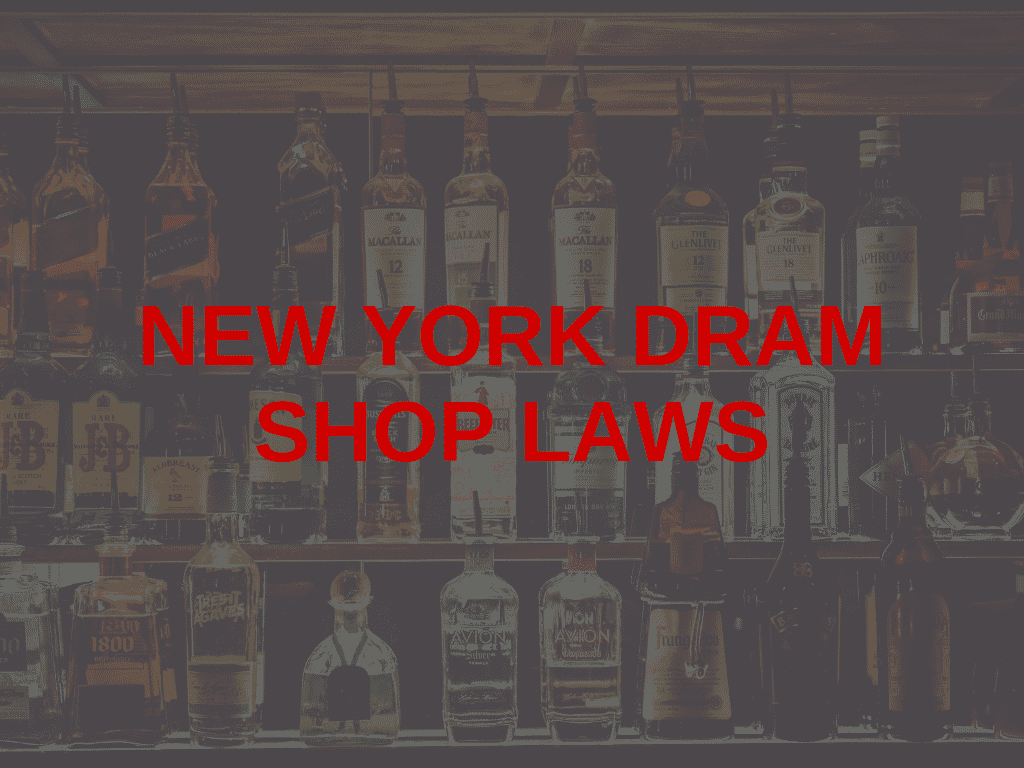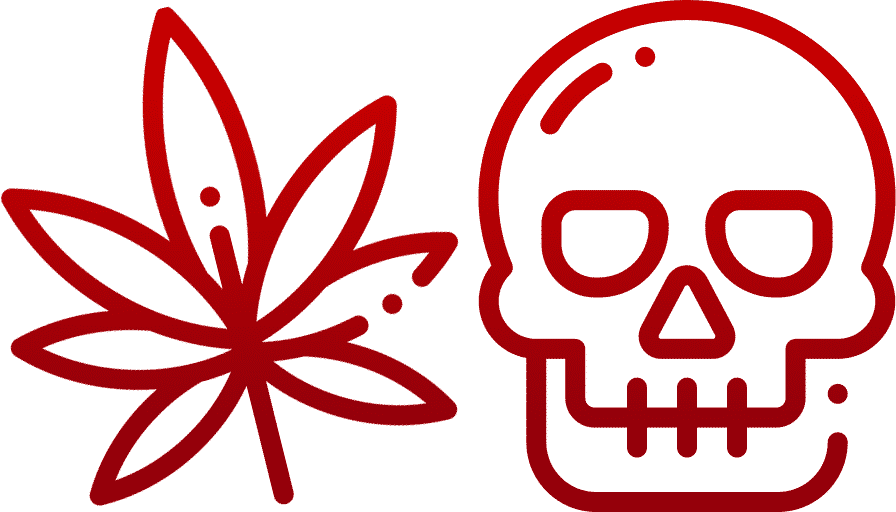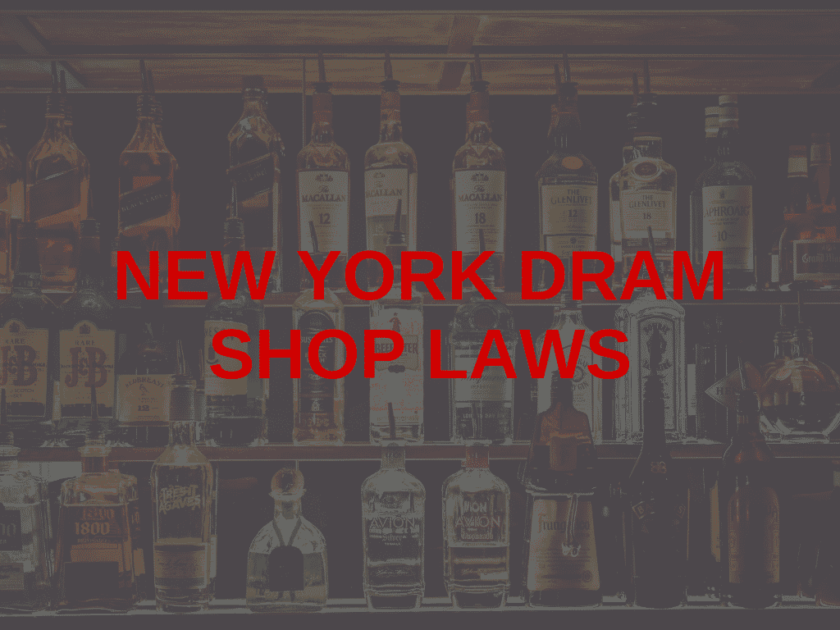
New York is similar to many other states in that if you end up being injured due to an intoxicated individual’s own negligence, you can then bring up any type of personal injury claim against that person. But here in New York your legal options don’t necessarily stop with a claim against the intoxicated individual, and you can also potentially have a legitimate claim against the business, or any other third party, which provided the intoxicated person with alcohol.
These particular personal injury cases are known as dram shop claims, and the historical reasoning behind this name is because alcohol was once sold in measuring units called drams. New York’s Dram Shop Act is found in the state’s General Obligations Law sections 11-100 and 11-101, and there were many cases throughout the 1990s that helped fully interpret and establish the overall limits of New York’s Dram Shop Act.
These types of cases have now become more prevalent again throughout New York in the past few years, and this article will provide you with a refresher on the intricate details of dram shop cases by looking into third-party liability for alcohol-related accidents, what dram shop laws cover, what plaintiffs must prove, as well as the more subtle nuances that clients and attorneys alike sometimes forget about.
Underage Drinking & Social Host Liability
Let’s first look into the letter of New York’s Dram Shop Act, per Sections 11-100 and 11-101.
Section 11-100 discusses the liability when a minor is the intoxicated person in an alcohol-related incident, and Section 11-101 delves into the liability when a business or alcohol provider illegally gives alcohol to an intoxicated person.
In both these situations the person who is injured in the alcohol-related accident can bring about a personal injury claim against the establishment/party who provided the alcohol, under the following stipulations:
- The business/vendor knowingly caused an individual to become intoxicated/impaired through unlawfully providing alcohol to the individual (11-101)
- The business/vendor knowingly caused intoxication through providing alcohol to an individual they knew was under 21, or to someone they had a reasonable belief to be under 21.
It’s important to understand that alcohol beverage vendors or social hosts are not held liable in New York if they legally provide alcohol to someone 21 or over, even when that intoxicated individual injures someone else due to their intoxication and overall negligence.
But there are many caveats to what constitutes a legal and illegal provision of alcohol, and the illegal conduct that 11-100 and 11-101 set forth is officially defined as, “No person shall sell, deliver or give away or cause or permit or procured to be sold, delivered or given away any alcoholic beverages to (1) Any person, actually or apparently, under 21 years and (2) any visibly intoxicated person.”
What Do New York’s Dram Shop Laws Cover?
A major part of dram shop laws essentially make it illegal for businesses to serve alcohol to anyone who seems visibly intoxicated, and this legal definition of visibly intoxicated is relatively left up to the employee who is serving alcoholic beverages. Some of these signs may be bloodshot eyes, a general lacking in overall physical coordination and slurred speech. We’ll discuss the visible signs of intoxication and the legal implications involved with this tricky part of dram shop laws more below.
One of the more unique aspects of New York’s dram shop laws is that the intoxicated patrons themselves cannot actually sue the business establishment that served them. But in turn, the business defendant could potentially be held liable for the damages that a patron of the business establishment causes to a third party. An example of this would be a bar/restaurant serving an intoxicated individual and then that person drives off and hurts someone, which subsequently could lead to the injured person suing the bar for personal injury contributions.
Dram shop laws also go much further than just vehicular accident, and can include situations like when a bar patron fights or attacks an innocent bystander, or hurts any type of pedestrian. These laws also cover the overall legal prohibition for serving known habitual drunkards as well.
What Must Plaintiffs Prove for a Successful Dram Shop Claim?
If a drinking establishment of any type is to be held liable, then it’s crucial that a plaintiff proves the following:
- The person who caused the injury was intoxicated at the time of the incident
- The defendant (business) sold liquor to the intoxicated individual
- The defendant contributed to or ultimately caused the injury-inducing person’s subsequent intoxication
If a plaintiff can prove all three of these stipulations then the drinking establishment defendant may be held liable for the overall direct actions taken by the patrons, as well as any type of situation in which a patron was part of a party that was connected to an incident that induced a third party injury.
Commercial Sale of Alcohol
Most courts have been consistent in holding 11-101 of the New York Dram Shop Act to applying solely within the context of alcoholic beverage commercial sales, which is legally defined as the sale of alcohol for profit. There have been dram shop claims denied within certain extenuating circumstances beyond the traditional definition of a commercial sale, including situations like an office social function or an employer allowing their employees to have free alcoholic beverages during their work shifts.
Dram shop liability also does not apply in situations when alcoholic consumption occurs within the private home, which includes underage consumption, given the undisputed facts that alcohol was not commercially sold within the private home.
Direct Tortfeasor Sale
Once a commercial sale is confirmed within a dram shop claim, the determination of the liquor sale as direct or indirect to the tortfeasor is then established. Any type of indirect sale, regardless of the quantity of the sale, makes dram shop liability invalid for a vendor or business.
This is because the New York Court of Appeals has held that a dram shop liability defendant does not have the legal duty to investigate any type of potential consumers of their commercially sold products, but there are further conditions.
A business can be held liable for indirect sales if the tortfeasor was in the defendant’s business with the purchaser of the alcoholic beverages at the time of purchase, provided money to help purchase the alcohol, or even grabbed the bag with the alcohol in it after the sale occurred before leaving the premises.
Visible Signs of Intoxication
Visible signs of intoxication are a major part of many Dram Shop Act litigation cases, and this provision typically helps limit the liability of a commercial seller in situations in which there wasn’t a reasonable basis for knowing the extent of a consumer’s inebriation.
Visible intoxication is something that can be established through direct or circumstantial evidence, the latter including eyewitness and expert testimonies. But for the most part a New York court will find one piece of circumstantial evidence to be insufficient to establish visible intoxication, and rather must be accompanied by multiple pieces of evidence.
Evidence based on the specific times when a tortfeasor was in the defendant’s business/establishment typically is needed in order to satisfy visible intoxication requirements.
Procuring Alcohol for Minors
Section 11-100 of the New York Dram Shop Act also applies to any provider that unlawfully assists or furnishes the procurement of alcoholic beverages for anyone under 21. The concept of assisting in the procurement can include using one’s own money or financially contributing to alcoholic beverage purchases.
The main defenses in this situation are when the defendant didn’t know that minors were consuming alcohol or didn’t authorize the illegal alcohol consumption on their premises, or didn’t provide minors with alcohol.
Fake IDs are also a fuzzy nuance to dram shop laws, but careful ID examination is always legally necessary. Sellers of fake IDs are also never liable under the Dram Shop Act because they aren’t technically selling alcohol to minors.
There also still needs to be evidence that demonstrates an underage bar patron was intoxicated at the time of the eventual alcohol-related incident in order to establish dram shop liability against an establishment, even despite having evidence a minor consumed alcohol at a defendant’s business.
Plaintiff’s Own Intoxication-Induced Injuries
This aspect of dram shop law simply states that there is no liability for a defendant when it comes to an intoxicated patron’s self-induced injuries.
Lessors of Premises
This part of dram shop liability entails how premises owners who lease out their premises to alcoholic beverage selling tenants cannot be held liable in these cases. This is because the owner of a premises doesn’t have the legal duty to control how the patrons or tenants conduct themselves.
The premises owner is only liable if he/she is present and has the opportunity to aid in the overall control of the patron’s conduct, or is reasonably aware of the patron’s conduct and necessity for this type of control.
How a New York Dram Shop Liability Lawyer Can Help
Each Dram Shop Act case requires an extensive amount of careful analysis to fully understand the circumstances and facts that lead to potential liability evaluations, and Siler & Ingber can help you navigate these complicated laws.
Dram shop actions typically have at least three parties, and this often leads to several conflicts of interest and overlapping claims that make it important to work closely with an experienced lawyer. The attorneys of Siler & Ingber are dedicated to helping victims of all personal injury accidents, no matter how complicated the situations are that lead to an incident occurring.
We work diligently to make sure you’ll recover damages for your injuries, and we’ll help you handle the complicated situations that insurance companies can pose for these complex injuries. Our initial consultations are always free, and we’ll never charge you unless we earn money back for you.
Contact us today at 877-718-6079, or contact us online to schedule an appointment.

The Impact Of Marijuana Legalization
Would New York legalizing recreational marijuana increase road accidents? We took a look at the stats in our latest study.
View StudyThe Law Office of Siler & Ingber, LLP
Phone:
1.516.294.2666
Address:
301 Mineola Blvd. Mineola, NY 11501
Subscribe to our Newsletter
SubscribeThis is a unique website which will require a more modern browser to work!
Please upgrade today!

